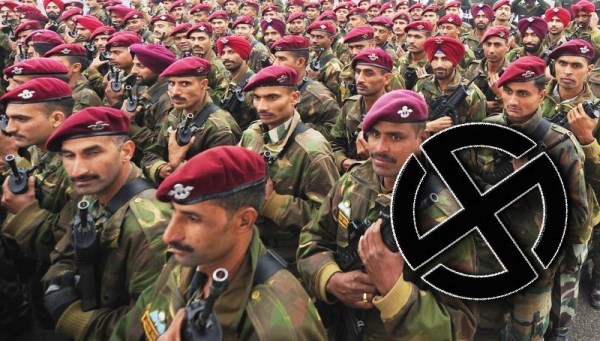Although the Supreme Court has allowed armed forces personnel to vote as general voters, there are significant caveats and its interim order is likely to benefit only a small percentage of service voters in the General Election.
The Supreme Court has ordered the Election Commission of India to allow armed forces personnel to vote as general voters in the constituencies where they reside. In its interim order, the Court directed the ECI to register defence personnel as general voters in constituencies where the election process has not commenced, making the order applicable to peace stations and to personnel posted since January 01, 2014 who continue to be stationed there.
It is important to note that this is an interim order and the final decision of the court on the writ petition is still awaited. Also, this order is likely to benefit only a small percentage of service voters.
It was pointed out that service voters could, so far, only vote as general voters if they had resided in the constituency for a period of at least three years.
It was further pointed out that most armed forces personnel have tenures that amount to less than the period of three years and the argument was made that this prevented most service voters from exercising their franchise, even as other sections of the voting demographic are allowed to vote after having resided for, in some cases, no more than six months in a constituency. The Court appears to have accepted this contention and has reflected it in its interim order.
According to figures that emerged during the hearings in this case, there are around 15 lakh (1.5 million) service voters. Out of these, around 13.6 lakh (1.36 million) have already registered themselves for voting by postal ballot. This order would, therefore, not be of benefit to them as they are already registered voters.
Further, since the election process has already commenced in 225 constituencies, no unregistered service voter in these constituencies would be able to benefit from this order and vote as a general voter. This order would only apply in the remaining 318 constituencies. During the course of the hearings it was argued that allowing armed forces personnel to vote as general voters in the constituencies where they reside could create voting blocks in areas with large concentrations of armed forces personnel. It was further argued that this could even have the effect of turning a hitherto reserved constituency into an unreserved constituency because of the change in the qualified voter demography.
While the Court left this matter to be decided on merit in its final decision, it allowed the Election Commission the right to continue to deny political parties permission to campaign in cantonments and military stations, pending its final decision.
(Source-Startpost)
It is important to note that this is an interim order and the final decision of the court on the writ petition is still awaited. Also, this order is likely to benefit only a small percentage of service voters.
It was pointed out that service voters could, so far, only vote as general voters if they had resided in the constituency for a period of at least three years.
It was further pointed out that most armed forces personnel have tenures that amount to less than the period of three years and the argument was made that this prevented most service voters from exercising their franchise, even as other sections of the voting demographic are allowed to vote after having resided for, in some cases, no more than six months in a constituency. The Court appears to have accepted this contention and has reflected it in its interim order.
According to figures that emerged during the hearings in this case, there are around 15 lakh (1.5 million) service voters. Out of these, around 13.6 lakh (1.36 million) have already registered themselves for voting by postal ballot. This order would, therefore, not be of benefit to them as they are already registered voters.
Further, since the election process has already commenced in 225 constituencies, no unregistered service voter in these constituencies would be able to benefit from this order and vote as a general voter. This order would only apply in the remaining 318 constituencies. During the course of the hearings it was argued that allowing armed forces personnel to vote as general voters in the constituencies where they reside could create voting blocks in areas with large concentrations of armed forces personnel. It was further argued that this could even have the effect of turning a hitherto reserved constituency into an unreserved constituency because of the change in the qualified voter demography.
While the Court left this matter to be decided on merit in its final decision, it allowed the Election Commission the right to continue to deny political parties permission to campaign in cantonments and military stations, pending its final decision.
(Source-Startpost)
No comments:
Post a Comment